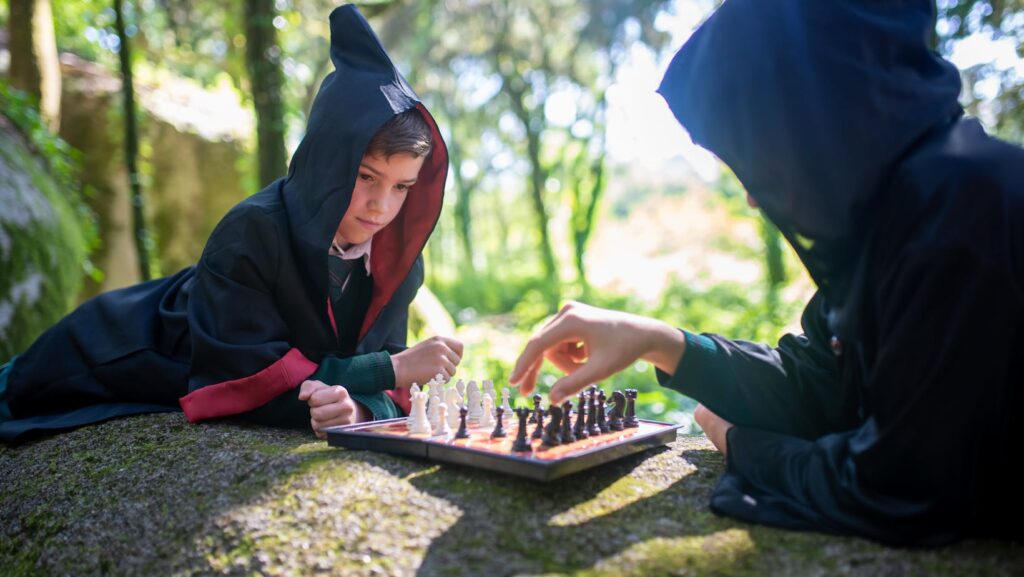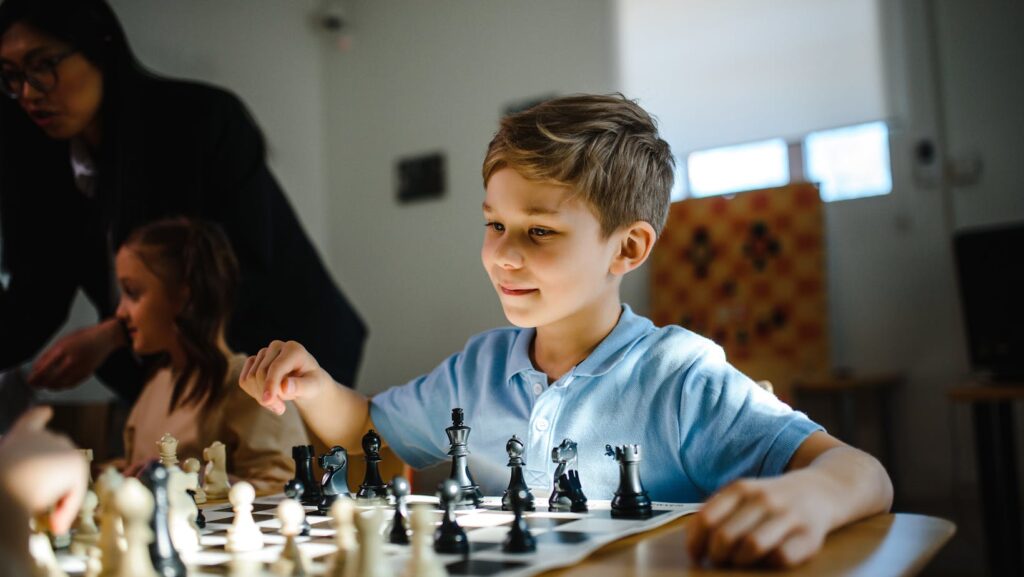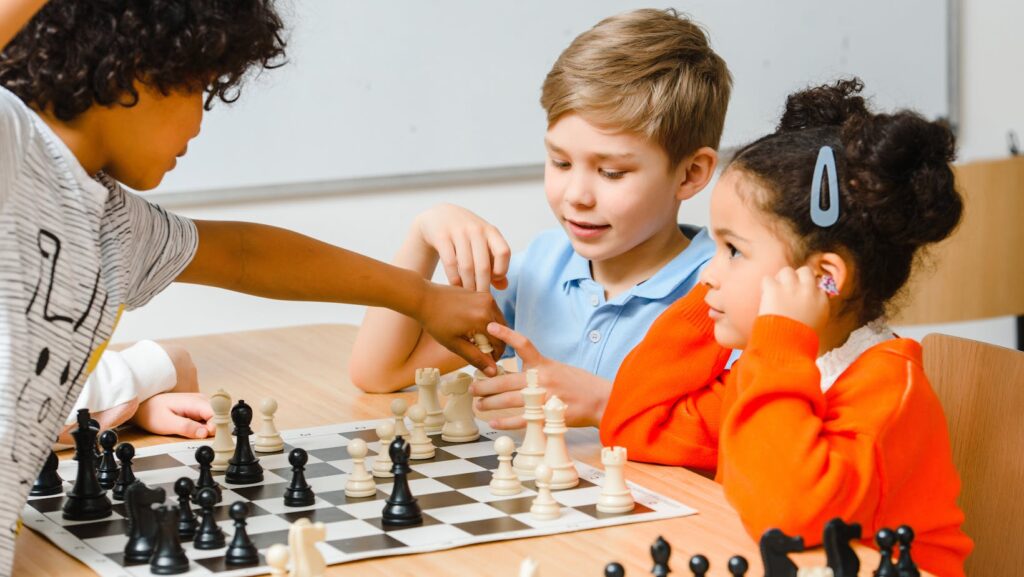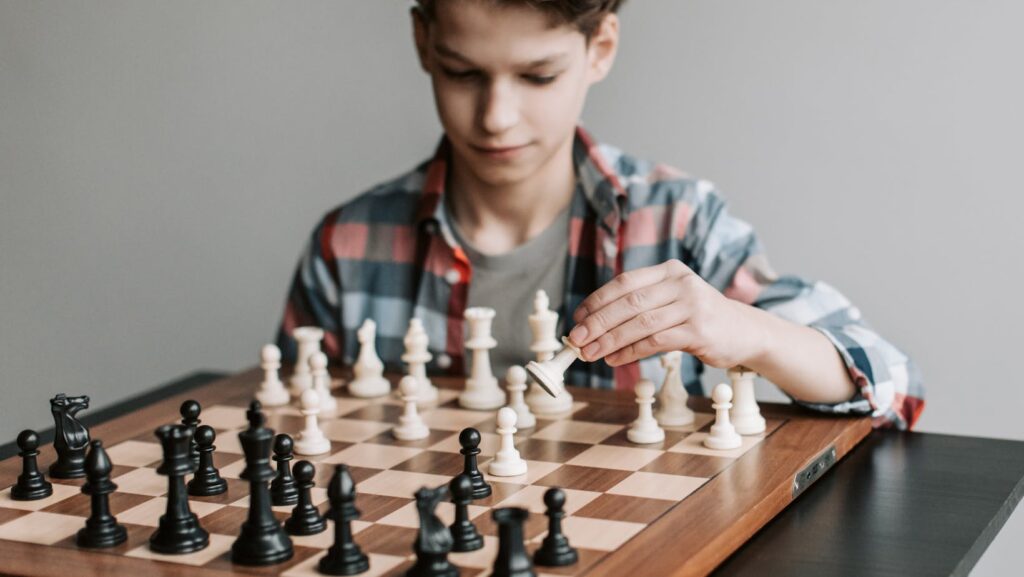Imagine a world where the youngest minds are not just playing games, but strategically plotting their next move on a chessboard. This isn’t fantasy—it’s the reality of strategic kids chess. A realm where children aren’t just players, but thinkers, strategists, and future grandmasters.
Strategic Kids Chess

While the game of chess can appear complicated, the basics—when broken down—become manageable even for young learners. This section delves into those foundational aspects that make up chess, and hence, makes it more approachable and engaging for kids.
At the very essence, chess is a game of movement. Every piece represents a unique ability, each serves a distinct purpose. For instance, the rook moves in straight lines, either horizontally or vertically across any number of empty squares. The knight, on the other hand, makes a move in an L shape: two steps in one direction, and then a further step at a right angle.
Importance of Strategy Over Tactics
Taking chess beyond mere movement, strategy forms the very backbone of superior play. In contrast to tactics—which are short-term calculated sequences—strategy describes the long-term goals a player is trying to achieve, paired with the plans to reach them. At the heart of any formidable chess game, there’s a well-crafted strategy beating. This approach, when instilled in children early, not only enhances their game, but also translates into life skills, such as planning ahead, making informed decisions, and problem-solving in complex situations.
Benefits of Strategic Chess for Children
Enhances Cognitive Development

Strategic kids chess creates benefits for children’s cognitive development, making it an impressive tool for nurturing young minds. This game stimulates the frontal and parietal lobes of the brain, the areas linked to planning, judgment, and decision-making. As per the American Journal of Neuroradiology, consistent chess players demonstrate an increased cerebral cortex thickness, improving their cognitive skills.
Improves Problem-Solving Skills
Another major benefit that strategic chess offers to children is the enhancement of problem-solving skills. Every move in a game of chess represents a problem that needs an immediate solution, hence training the player’s mind to think logically, quickly, and creatively. According to a study conducted by The New England Journal of Public Policy, kids who played chess consistently showed an improvement in not only their critical thinking, but also in their problem-solving abilities.
Teaching Strategic Chess to Kids
Choosing the Right Chess Sets and Materials

Starting to learn chess requires not intricacy, but simplicity. Opt for chess sets that are clear, colorful, and kid-friendly. Materials such as silicone chess mats provide comfort, minimize noise, and are easy to clean. Sturdy, lightweight pieces designed for little hands enhance the handling experience during gameplay. Also, consider chess boards with labeled coordinates, beneficial in assisting kids to understand the game’s spatial dimensions better.
For an enhanced learning experience, incorporating educational chess books can offer detailed insights. Books such as ‘Chess for Children: How to Play the World’s Most Popular Board Game’ by Murray Chandler elucidate the rules, strategies, and basics of chess in an engaging way for kids.
Simplifying Complex Strategies for Young Minds
Teaching chess strategies to kids is both an art and science. It is vital to remember the child’s cognitive development stage before introducing advanced concepts. Begin with simple strategies such as controlling the center, developing pieces promptly, and protecting the king.
Adopt instructive and fun methods of teaching. For instance, introduce them to the concept of forks, pins, and skewers using familiar analogies involving their favorite characters or superheroes.
The Cognitive Benefits of Chess for Children
Strategic kids chess proves to be a powerful tool for children’s cognitive development. It’s not just a game, but a learning experience that enhances problem-solving and strategic thinking. Teaching kids chess isn’t about mastering complex tactics. It’s about simplifying strategies to suit their learning capabilities. With the right chess materials, educational books, and interactive tools, they can grasp the basics and gradually advance their skills.

